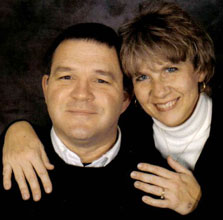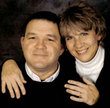December 1, 2008
|
Pat Jones, Director of Healthy Church Ministries
I’ve been amazed to see so many people living in deception when it comes to their relationship with their own church. When disgruntlement raises its head, or when people resist change that will bring about greater effectiveness in fulfilling the mission of the church, it’s common to hear statements like these:
- “But this is my church.”
- “You’re not going to do that to my church.”
Generally, the term “my” implies not only identification with, but also ownership. My computer. My home. I own them. And I determine what happens with them.
There is the deception. Did you catch it?
It is the same subtle deception Jesus spoke about in Luke 20. He tells a parable about a man who planted a vineyard, entrusted it to some farmers, and went away. He wanted to collect from his tenants and sent servants to do so. But they beat the servants and finally killed the owner’s son because they deceived themselves into thinking that they owned the vineyard.
They worked it. They spent the time there. They kept the walls up. They watered it. How dare the owner try and take something from them!
So it is with churches. You can deceive yourself into thinking you can do with the church what you want because:
- I am a member.
- I have attended there for a long time.
- I have given money to buy or build or pay off debts.
- I have worked there for so long.
- And no one has the authority or right to do anything without my permission.
I want to take a couple installments to address ownership of the church and our proper relationship to the church.
To prepare, ask yourself these questions:
- Do I feel I have a shared ownership of the church I attend?
- Do I see my church as a place of shared responsibility to the Owner?
One last thought. Jesus looked right at the people and asked what they thought the owner would do to the tenants? He told them he would come, kill those tenants, and give the vineyard to others. The people responded, “May it never be.”
I pray it won’t be so for any of us.
 Sandie Birdsall is currently in an Intensive Care Unit in Edina, Minn., having undergone emergency surgery for an aneurysm on Monday, December 1. Sandie and her husband, Brent, served as UB missionaries in Sierra Leone and, until 2007, as senior pastor and wife at College Park UB church in Huntington, Ind. Brent is currently on staff with a non-UB church in Minnesota.
Sandie Birdsall is currently in an Intensive Care Unit in Edina, Minn., having undergone emergency surgery for an aneurysm on Monday, December 1. Sandie and her husband, Brent, served as UB missionaries in Sierra Leone and, until 2007, as senior pastor and wife at College Park UB church in Huntington, Ind. Brent is currently on staff with a non-UB church in Minnesota.
 Brent and Sandie Birdsall are well-known in United Brethren circles for their years as UB missionaries and in the UB pastorate. Brent is currently on staff with a non-UB church in Minnesota.
Brent and Sandie Birdsall are well-known in United Brethren circles for their years as UB missionaries and in the UB pastorate. Brent is currently on staff with a non-UB church in Minnesota. Randy and Toni Fennig have been in Sierra Leone for two months now. However, their shipping container has been stuck at the port, awaiting release by the government authorities.
Randy and Toni Fennig have been in Sierra Leone for two months now. However, their shipping container has been stuck at the port, awaiting release by the government authorities.